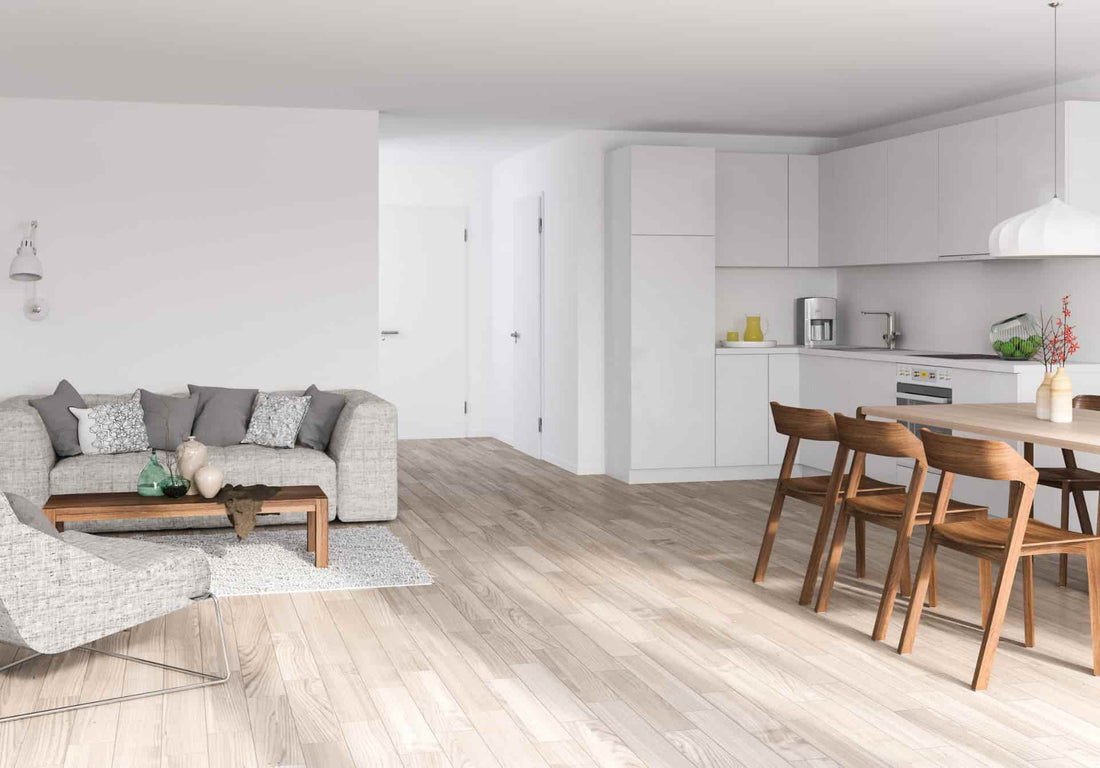When it comes to choosing the right type of vinyl flooring for your home, you have two primary options: vinyl plank or vinyl sheet flooring. Each type has its unique benefits and drawbacks, making it important to do your research on both before making a decision.
What Are The Differences Between Vinyl Plank and Vinyl Sheet Flooring?
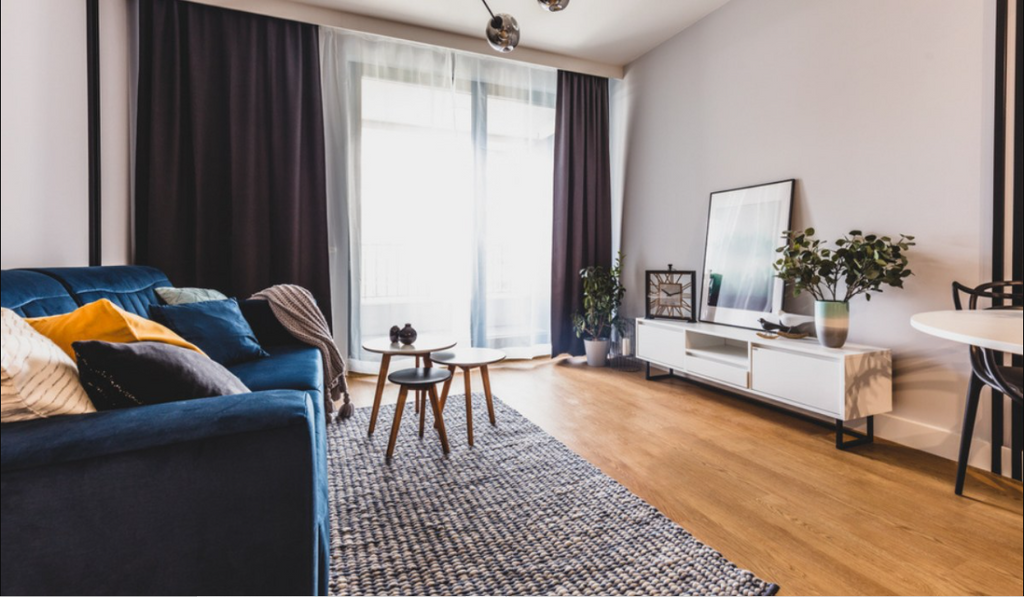
Vinyl plank flooring is becoming increasingly popular in home design, thanks to its resemblance to hardwood flooring. Vinyl planks are long, narrow strips that can be installed easily with or without adhesive. They are extremely durable and scratch-resistant, making them a great option for high-traffic areas of the home. Additionally, vinyl planks come in a wide variety of colors and patterns, giving homeowners the ability to create their desired look and style.
While vinyl plank flooring offers many advantages, it's not perfect. One potential downside is that it can be more expensive than vinyl sheet flooring. Additionally, installation can be more complicated, which could increase costs even further. Finally, some homeowners simply prefer the look and feel of a solid sheet of flooring over the planked appearance of vinyl planks.
On the other hand, vinyl sheet flooring is a more traditional type of vinyl flooring that has been around for decades. As the name suggests, it comes in large sheets and is typically installed using adhesive. Unlike vinyl planks, there are no seams between sheets of vinyl sheet flooring, which can help to create a more seamless look and feel to the overall design. Vinyl sheet is also generally less expensive than vinyl plank, making it a great budget-friendly option for home renovations.
However, there are also some potential disadvantages of vinyl sheet flooring. One major drawback is that it can be less durable than vinyl plank flooring, especially in high-traffic areas. Additionally, vinyl sheet flooring can be more difficult to install properly, particularly if you are attempting a complex pattern or design.
In summary, both vinyl plank and vinyl sheet flooring offer a variety of benefits and drawbacks. Ultimately, the right choice is dependent on your personal preferences, budget, and desired style. Before making a decision, consider consulting with a flooring specialist or doing additional research to ensure that you are making the best choice for your home. Vinyl flooring has been a popular choice for homeowners who want durable and affordable flooring solutions. Today, there are two different types of vinyl flooring: vinyl plank and vinyl sheet flooring. It can be difficult to determine which one is the right choice for your home. In this article, we will explore the differences between the two types to help you make an informed decision.
Vinyl plank flooring is designed to mimic the look and feel of hardwood flooring. This type of vinyl flooring is made up of individual planks that are installed using a tongue and groove system. Vinyl plank flooring is available in a variety of colors and styles that can mimic the look of different hardwoods. Vinyl plank flooring is a popular choice for those who want a durable and low-maintenance flooring solution. It is resistant to scratches, spills, and stains, making it an ideal choice for high-traffic areas like living rooms and entryways.
On the other hand, vinyl sheet flooring comes in large, continuous rolls that can be easily cut to fit any space. This makes vinyl sheet flooring a popular choice for large areas, like kitchens and bathrooms. Vinyl sheet flooring is also popular in commercial buildings, where durability and easy maintenance are essential. Vinyl sheet flooring is available in a wide range of colors and styles, including designs that mimic the look of stone or ceramic tile.
What Do You Need To Consider When Choosing Between Vinyl Plank And Vinyl Sheet Flooring?
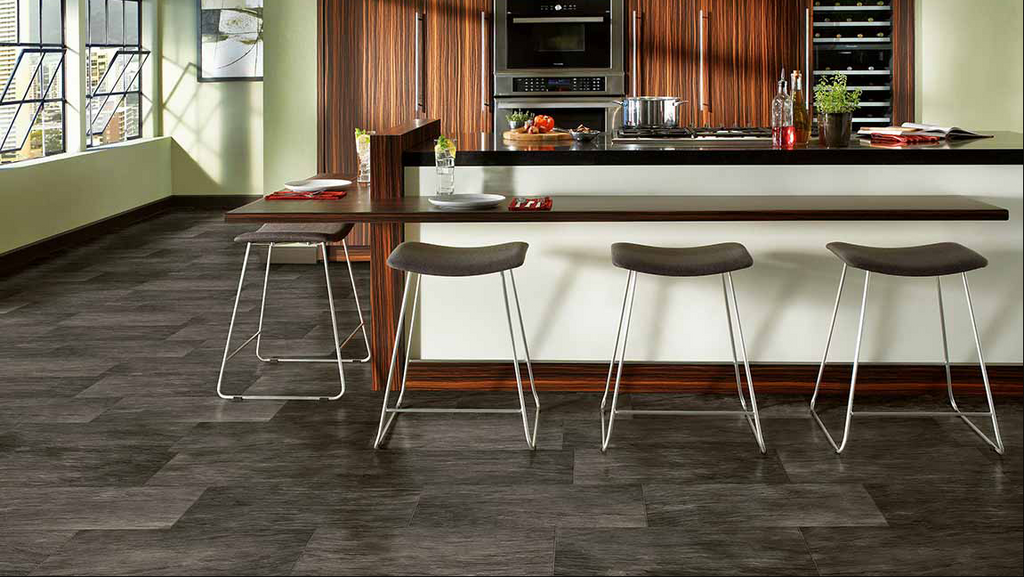
When deciding between vinyl plank and vinyl sheet flooring, it is important to consider your specific needs and budget. If you want a flooring solution that closely resembles hardwood flooring, vinyl plank flooring may be the best choice for you. However, if you need a budget-friendly and durable flooring solution for a large space, vinyl sheet flooring may be a better option.
Another factor to consider is the installation process. Vinyl plank flooring is generally easy to install and can be done by most homeowners. Vinyl sheet flooring, on the other hand, can be more difficult to install and may require professional installation to ensure an even and smooth surface.
Ultimately, the choice between vinyl plank and vinyl sheet flooring will depend on your specific needs and preferences. Both types of vinyl flooring offer durability, affordability, and easy maintenance, making them popular choices for homeowners and business owners alike. By considering your specific needs and budget, you can choose the type of vinyl flooring that is right for you.
How Do You Clean And Maintain Vinyl Plank And Vinyl Sheet Flooring?
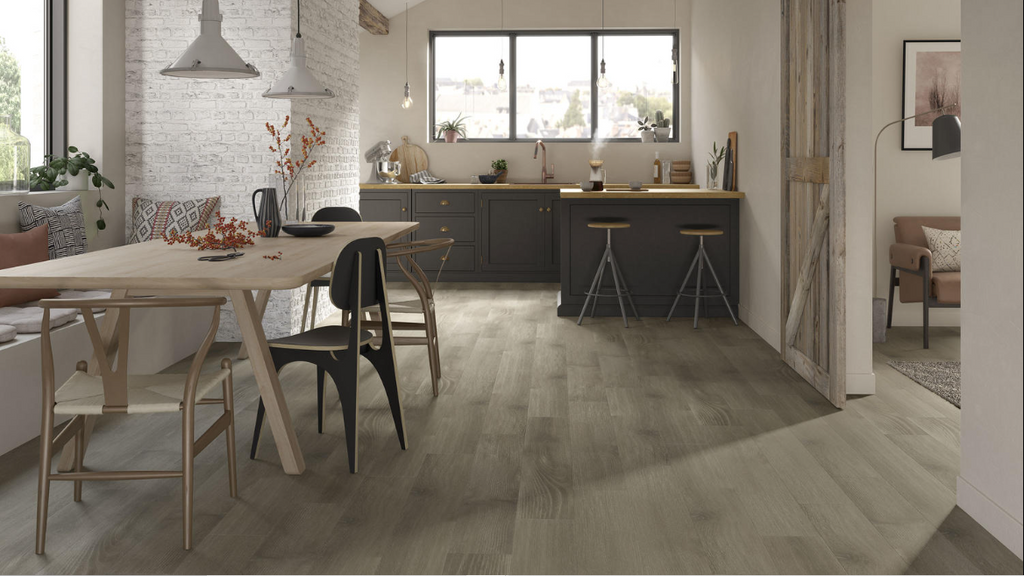
Cleaning and maintaining vinyl plank and vinyl sheet flooring is relatively simple, but it's important to do it properly to keep your floor looking its best. Here are some guidelines you should follow:
- Daily Cleaning: Use a soft broom, dust mop, or vacuum (with the beater bar turned off) to remove dust and dirt from the floor. Regular removal of debris can prevent the build-up of dirt, which can scratch and dull the surface of the floor.
- Wet Cleaning: You can clean your floor with warm water and a mop. If you need to use a cleaning solution, ensure it's designed specifically for vinyl floors. Avoid using abrasive cleaners, which can scratch the surface of the vinyl. When using water, don't soak the floor - a damp mop will suffice.
- Spot Cleaning: For spots or spills, clean them immediately to prevent them from setting into the floor. You can use a soft cloth or sponge with warm water and a gentle cleaner.
- Deep Cleaning: Every few months, you may need to do a deep clean, especially in high-traffic areas. Use a vinyl floor cleaner and follow the manufacturer's instructions.
- Preventing Damage: Use protective pads on the feet of furniture to prevent scratching or gouging the floor. Avoid dragging heavy furniture or appliances across the floor. It's also a good idea to use doormats at entrances to collect dirt before it's tracked onto the floor. Avoid using rubber-backed mats as they can stain vinyl flooring.
- Sunlight Protection: Too much direct sunlight can fade vinyl flooring. Use blinds, curtains, or other window treatments to protect your floor from the sun.
Remember, always follow the manufacturer's care instructions, as different types of vinyl flooring may require different care methods. The key is to keep the floor clean and dry to prevent damage and to handle any spills or stains promptly.
Final Thoughts On Vinyl Plank vs Vinyl Sheet Flooring: Which is Right for You?
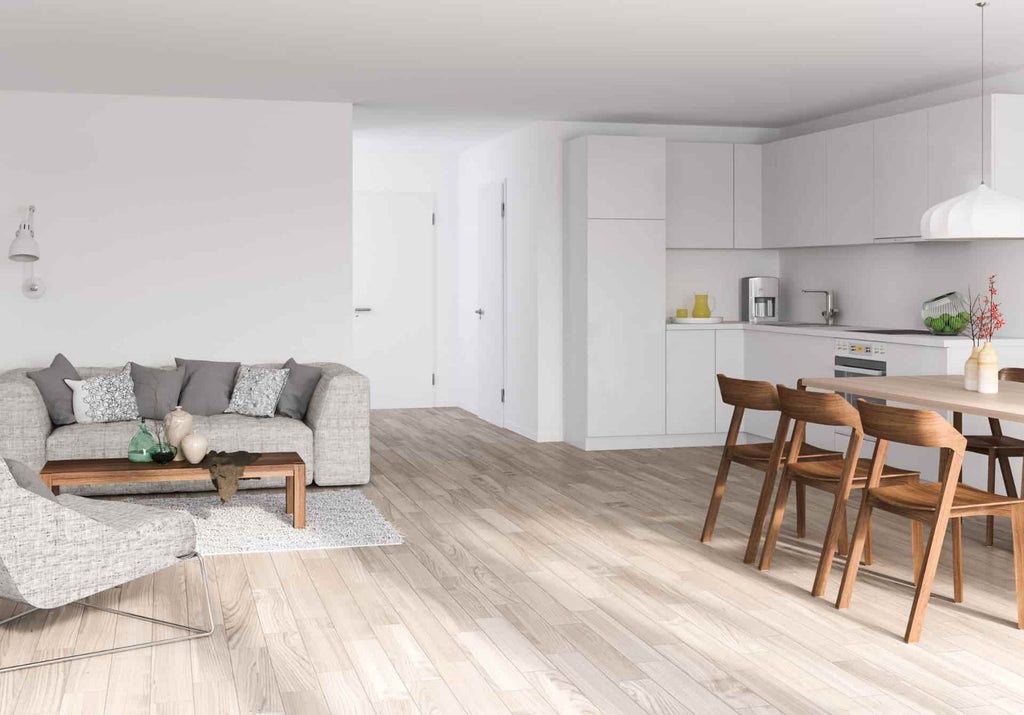
In conclusion, both vinyl plank and vinyl sheet flooring offer a host of benefits including durability, low maintenance, and a variety of design options, making them excellent choices for a range of settings. When deciding between vinyl plank vs. vinyl sheet flooring, consider factors such as installation complexity, room size, and desired aesthetic. While vinyl planks provide the appeal of a hardwood look and an easy click-lock installation process, vinyl sheet flooring offers seamless installation in larger spaces and a lower cost per square foot. In the end, the right choice between vinyl plank and vinyl sheet flooring hinges on your specific needs, preferences, and budget. With this comprehensive comparison, we trust you will make the most informed decision to elevate your home or business flooring. As always, for optimal performance and longevity, proper installation and diligent maintenance are key, no matter which vinyl flooring type you choose.
Other flooring blog articles you may want to read:
The Best Vinyl Flooring Article Ever Written. Everything I Wish I Knew Before I Bought A Vinyl Floor
What Are The Benefits of Vinyl Flooring?
